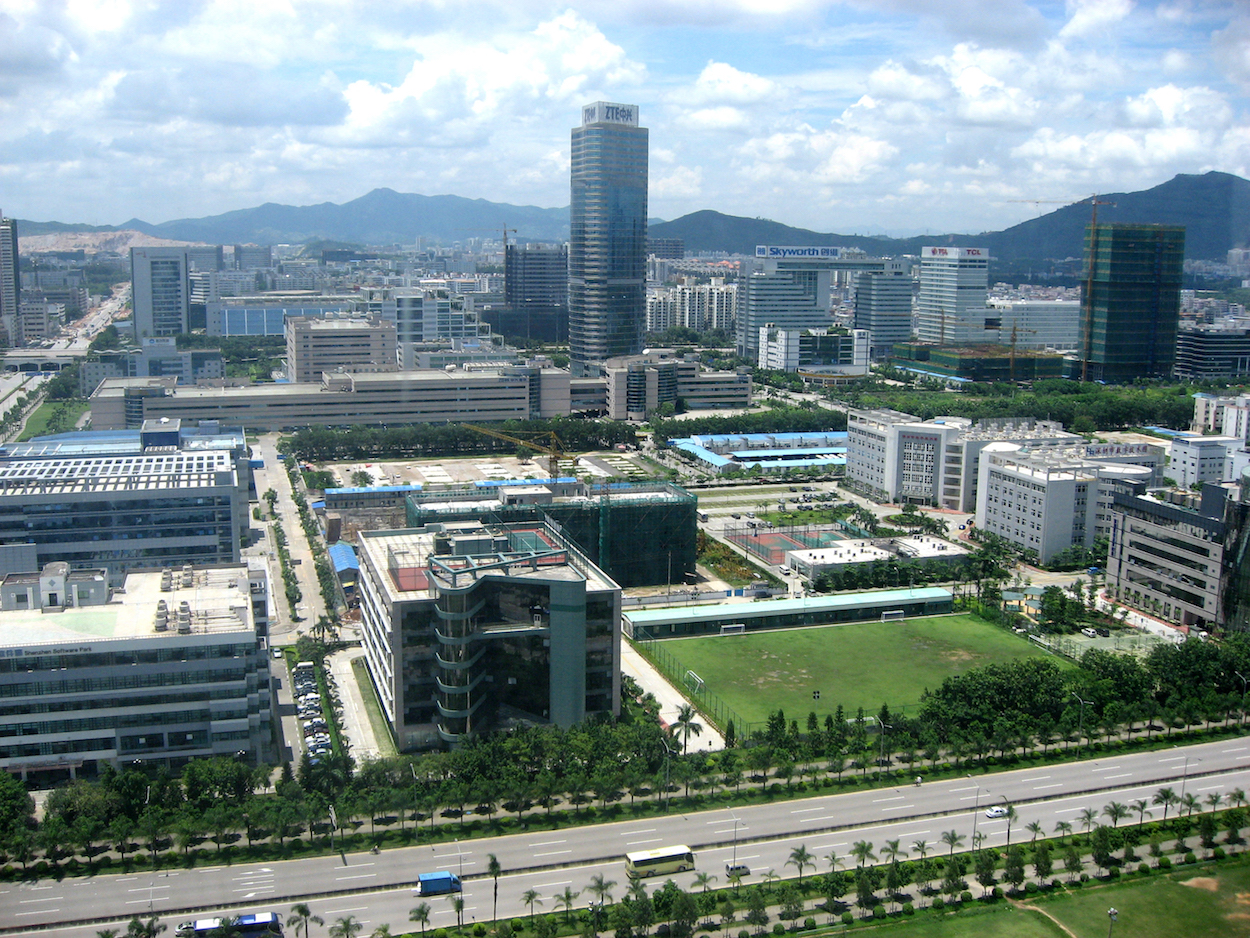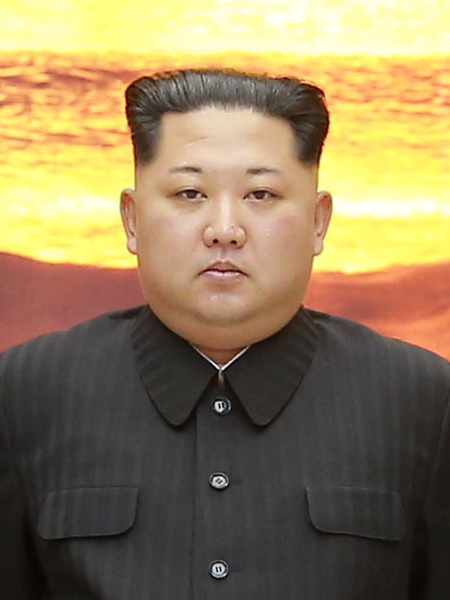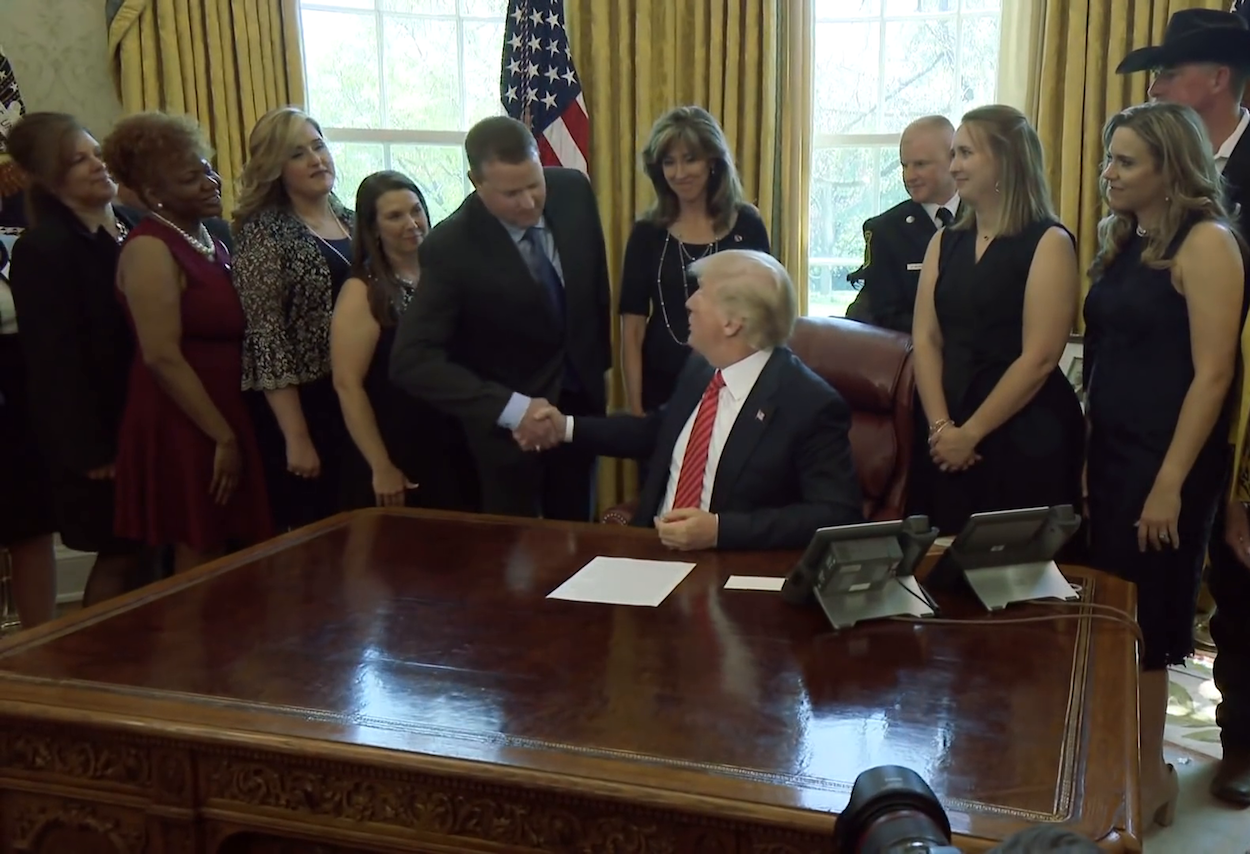by Brian Hioe
語言:
English
Photo Credit: Kārlis Dambrāns/WikiCommons/CC
CONFUSION HAS broken out in the United States regarding perceptions that American president Trump has abruptly reversed course, with claims that “too many jobs [have been] lost” in China, and that he intends to reverse sanctions on Chinese electronics manufacturer ZTE. Perhaps unsurprisingly, this has been little noticed in Taiwan, in which many still cling to the view that the Trump administration has been consistently supportive of Taiwan.
ZTE, which primarily manufactures cheap smartphones, was previously a target of American sanctions which forbade American companies from selling components to the company because the company defied US sanctions on Iran and North Korea. Because the company is heavily reliant on such parts, the company looked as though it might go out of business.
 ZTE’s corporate campus in the Shenzhen High-Tech Industrial Park. Photo credit: Brücke-Osteuropa/WikiCommons/CC
ZTE’s corporate campus in the Shenzhen High-Tech Industrial Park. Photo credit: Brücke-Osteuropa/WikiCommons/CC
Yet calling for suddenly relaxing sanctions on ZTE and claiming that too many Chinese jobs have been proves a large reversal for Trump, who had ramped up American rhetoric against China in past months. In particular, the Trump administration threatened to drag America into a trade war with China, as kicked off by significant increases in aluminum and steel tariffs.
Indeed, that Chinese companies were in fact affected by Trump’s trade war is a sign of how trade ties between the US and China do not simply go one way, as Trump claims with regards to his assertions that China is simply taken advantage of America. Namely, although increasingly geopolitical rivals, the economies of both countries are interlinked and, in fact, highly dependent on each other.
However, the Trump administration escalating tensions with China before abruptly reversing course would be nothing knew. The Trump administration has oscillated between periods of hostility and detente in the past, as observed in campaign promises by Trump to label China a currency manipulator and claims by Trump that China was unfairly stealing American jobs, before suddenly moving towards pro-China policies following a meeting with Chinese president Xi Jinping during a period which the influence of Trump’s son-in-law, Jared Kushner, seemed to have a decisive role in the Trump administration. Kushner’s disposition towards friendly policy with China was thought due to the substantial business interests of the Kushner family in China.
Among the key issues which led to the worsening of ties with China up until Trump’s reversal on ZTE has been escalating tensions with North Korea, following nuclear testing by the nation in September 2017. Trump subsequently lashed out at China for failing to rein in North Korea, its client state, and made threats of regime change against North Korea.
 Kim Jong-un. Photo credit: Blue House
Kim Jong-un. Photo credit: Blue House
Some suspect that with his reversal on ZTE, Trump now wishes to de-escalate tensions with China before his planned meeting with North Korean leader Kim Jong-un in June, given strong ties between China and North Korea. This may be with the hopes of China being able to rein in North Korea once again.
Others perceive Trump’s reversal as yet another sign of Trump’s generally inconsistent policy stances, with Trump seeming to reverse course after communication with any world leader in towards policies friendly towards that leader, inclusive of Trump’s controversial phone call with Tsai Ing-Wen in Taiwan in December 2016. It is not impossible that Trump had another communication with Xi Jinping, for example.
Still others suspect that Trump’s reversal may be due to China bribing Trump, in some sense, by providing 500 million USD in state loans for a Trump-affiliated construction project in MNC Lido City in Indonesia. Ethics lawyers from both the Bush and Obama administrations have suggested that Trump could have potentially violated the emoluments clause which applies to American presidents.
However, such developments remain under-discussed in Taiwan, with many preferring to selectively remember only the times that the Trump administration seems to have stood up for Taiwan, such as criticizing China attempting to force American airlines to refer to Taiwan as part of China on their websites as “Orwellian nonsense.” Similarly, one notes that reports from credible sources that Trump was actually upset over diplomatic officials who visited Taiwan following passage the Taiwan Travel Act because of the potential to offend China have failed to register in Taiwan, with many instead honing in on National Security Advisor John Bolton’s history of support for Taiwan.
 Donald Trump (center). Photo credit: White House
Donald Trump (center). Photo credit: White House
This would not be altogether surprising. Taiwan was itself affected by trade tariffs from the Trump administration, but many in Taiwan continued to see the Trump administration as having Taiwan’s best interests in mind. The consequences may be a steep learning curve for Taiwan.

